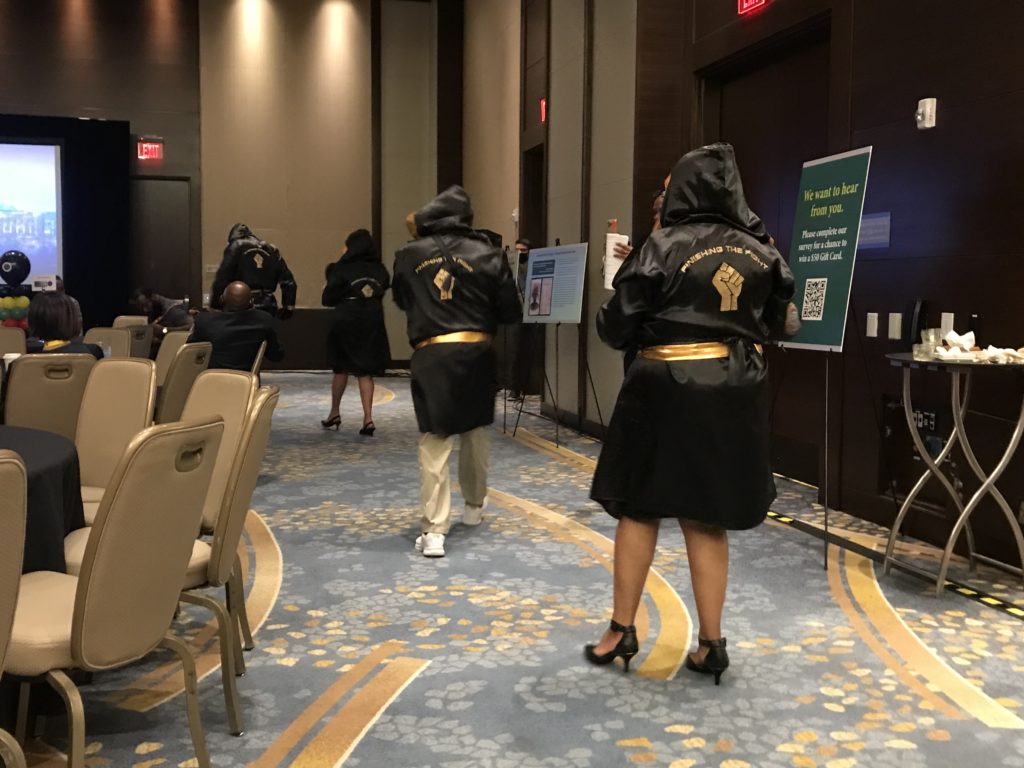By Alyssa Mouton, Senior Manager, Tobacco Control Advocacy
“Finishing the Fight” was the theme of the 3rd National Menthol Conference held September 28-30 in Washington, D.C. Convening tobacco control advocates, community leaders, researchers and public health experts from across the country, the conference focused on the end goal of a national ban on menthol flavoring in commercial tobacco products.
Menthol products are sold globally, but in the United States the tobacco industry has manipulatively targeted the Black community with these products. Although African Americans make up 12% of the population, they account for a disproportionate amount (41%) of smoking-related deaths. Banning menthol tobacco products—which account for 40% of cigarette sales in the U.S.—is not only a public health objective, it is also critical to promoting social justice and racial equity.
When added to tobacco products, menthol creates a cooling effect that makes them easier to use and more addictive. The minty coolness of the menthol covers up the harshness of the cigarette; as studies have shown, this allows smokers to inhale more deeply, which means they have more exposure to nicotine and tar. This also makes menthols more difficult to quit. According to the MD Anderson Cancer Center, this makes them comparatively more deadly.
Addressing this ongoing injustice was the focus of the 3rd National Menthol Conference. The tone of the convening was simultaneously one of celebration and of recognition of the challenges ahead. The conference’s “Finishing the Fight” theme recognized the hard-fought victories won by the persistence of tobacco control advocates and the conference hosts, which included the African American Tobacco Control Leadership Council, the Center for Black Health and Equity, Campaign for Tobacco Free Kids, and others.

The African American Tobacco Control Leadership Council and Action on Smoking and Health’s joint lawsuit in June of 2020 against the United States Food and Drug Administration (FDA) spurred the planning of this conference, the third to take place since 2002. The lawsuit cited the agency’s inaction on protecting the public from menthol tobacco products. As a result, the FDA announced in April 2021 their intention to propose bans against menthol cigarettes and flavored cigars. The FDA rule, if finalized, will prohibit the manufacture of cigarettes or their “components or parts” containing menthol as a characterizing flavor. The FDA, which controls the timeline for finalizing the menthol ban, is currently reviewing the comments received during the public commentary period.
The proposed rule would only prevent the manufacturing and sale of menthol products—there would be no penalty for individual use or possession. But, as Dr. Phil Gardiner, co-founder of the African American Tobacco Control Leadership Council, said:
“The end is in sight, but the tobacco industry could bring lawsuits for years to fight the full implementation of this rule.”
Indeed, the champions for a ban on menthol tobacco products have no illusions about the battle before them. Panel moderator Sharon Eubanks reminded conference attendees of the criminal nature of U.S. tobacco companies, referring to them as “federally adjudicated racketeers.” Eubanks, as lead legal counsel for the U.S. Department of Justice brought a 2006 federal lawsuit against the tobacco industry (U.S. v. Phillip Morris). This resulted in a landmark judgment that found that for decades the major U.S. tobacco companies had intentionally deceived the American public about the addictive effects of nicotine. It also found that the tobacco industry lied about the health risks of using their products and their practices of marketing to children. The lawsuit also found tobacco companies to be intentionally deceiving the public about the risks of secondhand smoke exposure which constituted a conspiracy that violated federal racketeering laws. Members of organized crime gangs have also been convicted under this statute, known as RICO.
The fact that the FDA was represented at the conference for the first time was a positive sign that momentum is shifting toward a menthol ban. Brian King, who was appointed director of the FDA’s Center for Tobacco Products in July 2022, spoke on a panel, sharing the podium with two people involved with the 2020 lawsuit against his agency. King reiterated that the menthol ban was both an FDA and a personal priority, and that he was sensitive to the lives lost triggered by any potential delays in finalizing the rule.
A national ban on menthol-flavored tobacco products would indeed be a critical step forward. Yet at the same time, the decision has disappointing global health equity implications. While the rule would prohibit the manufacturing or sale of menthol cigarettes in the U.S., it would not apply to cigarettes manufactured for export, so would not protect people beyond U.S. borders, where menthol products are gaining ground.
Ultimately, tobacco control advocates aim to eliminate menthol-flavored products globally, but a ban on menthol tobacco products in the U.S. would be a welcome victory. At Vital Strategies, we support the urgently needed FDA’s proposed ban on menthol products, and urge governments across the world to regulate all flavors and additives, especially those that attract new and youth smokers.
Get Our Latest Public Health News
Join our email list and be the first to know about our public health news, publications and interviews with experts.